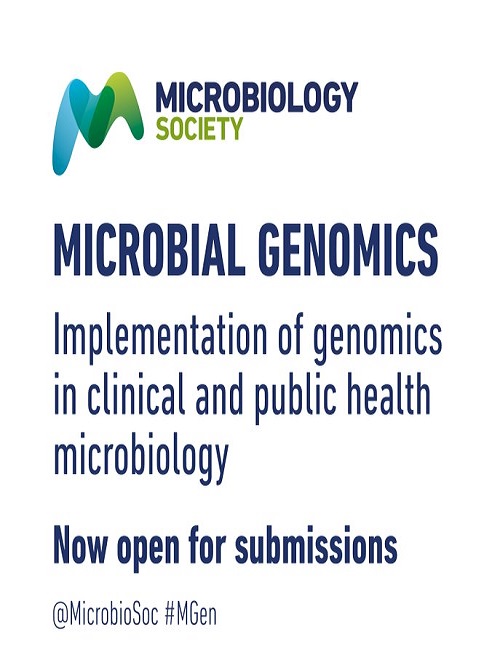评估耐甲氧西林金黄色葡萄球菌(MRSA)基因组流行病学对医院感染预防和控制决策的影响
IF 4
2区 生物学
Q1 GENETICS & HEREDITY
引用次数: 0
摘要
基因组流行病学提高了在医疗机构中检测和反驳耐甲氧西林金黄色葡萄球菌(MRSA)爆发的能力,但要将其常规化还需要进一步证明它对患者和资源利用的益处。我们在英国剑桥大学医院 NHS 基金会信托基金会进行了为期 12 个月的前瞻性研究,以了解它对医院感染预防和控制 (IPC) 决策的影响。2018年11月至2019年11月期间,通过医院微生物实验室确定了MRSA阳性样本。我们纳入了来自住院患者、门诊患者、急诊科复查者和职业健康部门筛查的医护人员的样本。我们对来自 823 个连续个体的首个 MRSA 分离物进行了测序,确定了他们的成对遗传相关性,并在医院和社区中寻找流行病学联系。通过对 823 株 MRSA 分离物进行基因组分析,确定了 72 个由两株或两株以上分离物组成的基因簇,其中包含 339/823 株病例(41%)。在 34/72 个群组中,有 190 人(23%)的两个或两个以上病例之间存在流行病学联系。每周与 IPC 团队分享基因组流行病学的最新进展,最终举行了 49 次面对面会议和 21 次书面交流。确定了 17 个与医院 MRSA 传播一致的群集,通过讨论,对其中 14 个群集采取了额外的 IPC 行动。此外,还发现两起疫情在医院就诊前已在社区传播;这些疫情已上报至相关 IPC 小组。我们发现有 38 例两个或两个以上的住院患者在重叠的日期共用一个病房,但却携带了不相关的 MRSA 分离物(假性疫情);研究数据导致其中 6 例疫情的调查升级。我们的研究结果进一步支持了基因组流行病学的常规应用,以增强 IPC 资源的针对性。本文章由计算机程序翻译,如有差异,请以英文原文为准。
Evaluating the impact of genomic epidemiology of methicillin-resistant Staphylococcus aureus (MRSA) on hospital infection prevention and control decisions
Genomic epidemiology enhances the ability to detect and refute methicillin-resistant Staphylococcus aureus (MRSA) outbreaks in healthcare settings, but its routine introduction requires further evidence of benefits for patients and resource utilization. We performed a 12 month prospective study at Cambridge University Hospitals NHS Foundation Trust in the UK to capture its impact on hospital infection prevention and control (IPC) decisions. MRSA-positive samples were identified via the hospital microbiology laboratory between November 2018 and November 2019. We included samples from in-patients, clinic out-patients, people reviewed in the Emergency Department and healthcare workers screened by Occupational Health. We sequenced the first MRSA isolate from 823 consecutive individuals, defined their pairwise genetic relatedness, and sought epidemiological links in the hospital and community. Genomic analysis of 823 MRSA isolates identified 72 genetic clusters of two or more isolates containing 339/823 (41 %) of the cases. Epidemiological links were identified between two or more cases for 190 (23 %) individuals in 34/72 clusters. Weekly genomic epidemiology updates were shared with the IPC team, culminating in 49 face-to-face meetings and 21 written communications. Seventeen clusters were identified that were consistent with hospital MRSA transmission, discussion of which led to additional IPC actions in 14 of these. Two outbreaks were also identified where transmission had occurred in the community prior to hospital presentation; these were escalated to relevant IPC teams. We identified 38 instances where two or more in-patients shared a ward location on overlapping dates but carried unrelated MRSA isolates (pseudo-outbreaks); research data led to de-escalation of investigations in six of these. Our findings provide further support for the routine use of genomic epidemiology to enhance and target IPC resources.
求助全文
通过发布文献求助,成功后即可免费获取论文全文。
去求助
来源期刊

Microbial Genomics
Medicine-Epidemiology
CiteScore
6.60
自引率
2.60%
发文量
153
审稿时长
12 weeks
期刊介绍:
Microbial Genomics (MGen) is a fully open access, mandatory open data and peer-reviewed journal publishing high-profile original research on archaea, bacteria, microbial eukaryotes and viruses.
 求助内容:
求助内容: 应助结果提醒方式:
应助结果提醒方式:


